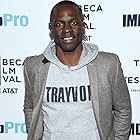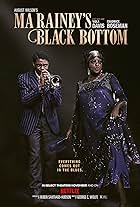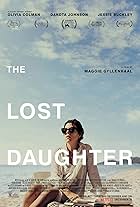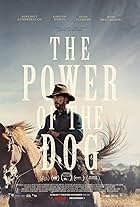"Passing" follows the unexpected reunion of two high school friends, whose renewed acquaintance ignites a mutual obsession that threatens both of their carefully constructed realities."Passing" follows the unexpected reunion of two high school friends, whose renewed acquaintance ignites a mutual obsession that threatens both of their carefully constructed realities."Passing" follows the unexpected reunion of two high school friends, whose renewed acquaintance ignites a mutual obsession that threatens both of their carefully constructed realities.
- Nominated for 4 BAFTA Awards
- 37 wins & 130 nominations total
Amos J. Machanic
- Ralph Hazelton
- (as Amos Machanic)
Amber Barbee Pickens
- Dancer
- (as Amber Pickens)
- Director
- Writers
- All cast & crew
- Production, box office & more at IMDbPro
Storyline
Did you know
- TriviaIn casting the two main characters, Rebecca Hall said she had to find two actors that could play either role, because both of them are so seduced by and interested in each other's lives. Ruth Negga agreed, suggesting that if they were doing it as a stage play, the actors could trade roles every other night. Tessa Thompson, however, demurred: "I would never want to play Clare. I love Ruth in this part so much, I wouldn't have done it."
- GoofsThe toy cars in the early stage of the movie were not possible to be made in the '20s as the toy cars from that era could not be produced at contemporary precision. Such precision was not possible until the '90s. Toy cars from the '30s usually had blunt axles without transparent windows nor interior.
- ConnectionsFeatured in CBS News Sunday Morning with Jane Pauley: 10-24-2021 (2021)
- SoundtracksThe Homeless Wanderer
Written and Performed by Emahoy Tsegué-Maryam Guèbrou
Courtesy of The Emahoy Tsege Mariam Music Foundation
Featured review
"We're all passing for something or other, aren't we?" Irene (Tessa Thompson)
Director Rebecca Hall's successful full-length debut, Passing, shows her artistic inclination to depict women on the verge of breaking away. Irene is a Black woman in the 1920's who could "pass" for white but just spends some time in the white world, being served and accepted in part because she is light skinned.
Now, her friend from her youth, Clare, consciously passes for white, and marries a racist who would kill if he knew his wife were Black. Although nothing shattering happens through most of the story, the racial divide is pronounced between white uptown and Harlem, where Irene and her husband, Brian, a doctor, live in a brownstone with a black maid and the two children he tries to prepare for a racist world they have yet to overcome.
As Clare continues to mingle with Irene's Black social life, Irene quietly assesses Clare's free-spirit and seems gently attracted to Clare. Yet, those feelings are Hall's quiet way of emphasizing the multifaced societal changes in a now truly reconstructed way.
Hall uses a crisp black and white image to accentuate the stark racial differences and the sterile laboratory-like world of incremental societal change. It's also an effective period enhancer. The title "Passing" carries multiple meanings fraught with the dark and light of good clashing with evil.
I couldn't help thinking of Fitzgerald's Gatsby, himself an interloper having romantic notions ill-suited to a society he crashes with dire consequences. Hall has caught the ironies and ambiguities of a society in change.
It isn't all pretty but generally a gorgeous palette with which promising neophyte Hall paints. Isn't it the truth: "I'm beginning to believe that no one is ever completely happy, free, or safe"? Irene
One of the best movies of the year.
Director Rebecca Hall's successful full-length debut, Passing, shows her artistic inclination to depict women on the verge of breaking away. Irene is a Black woman in the 1920's who could "pass" for white but just spends some time in the white world, being served and accepted in part because she is light skinned.
Now, her friend from her youth, Clare, consciously passes for white, and marries a racist who would kill if he knew his wife were Black. Although nothing shattering happens through most of the story, the racial divide is pronounced between white uptown and Harlem, where Irene and her husband, Brian, a doctor, live in a brownstone with a black maid and the two children he tries to prepare for a racist world they have yet to overcome.
As Clare continues to mingle with Irene's Black social life, Irene quietly assesses Clare's free-spirit and seems gently attracted to Clare. Yet, those feelings are Hall's quiet way of emphasizing the multifaced societal changes in a now truly reconstructed way.
Hall uses a crisp black and white image to accentuate the stark racial differences and the sterile laboratory-like world of incremental societal change. It's also an effective period enhancer. The title "Passing" carries multiple meanings fraught with the dark and light of good clashing with evil.
I couldn't help thinking of Fitzgerald's Gatsby, himself an interloper having romantic notions ill-suited to a society he crashes with dire consequences. Hall has caught the ironies and ambiguities of a society in change.
It isn't all pretty but generally a gorgeous palette with which promising neophyte Hall paints. Isn't it the truth: "I'm beginning to believe that no one is ever completely happy, free, or safe"? Irene
One of the best movies of the year.
- JohnDeSando
- Dec 29, 2021
- Permalink
- How long is Passing?Powered by Alexa
Details
- Release date
- Countries of origin
- Official site
- Language
- Also known as
- Giữa Hai Màu Da
- Filming locations
- Production companies
- See more company credits at IMDbPro
- Runtime1 hour 38 minutes
- Color
- Sound mix
- Aspect ratio
- 1.37 : 1
Contribute to this page
Suggest an edit or add missing content







































